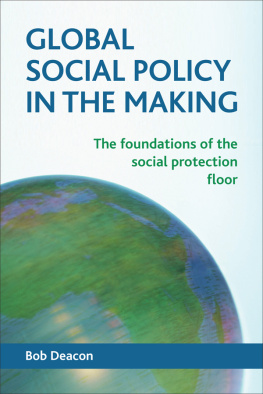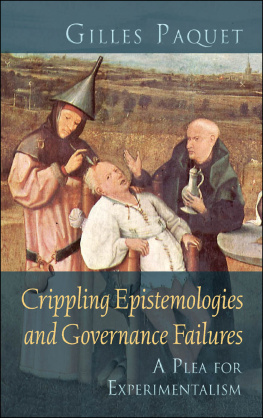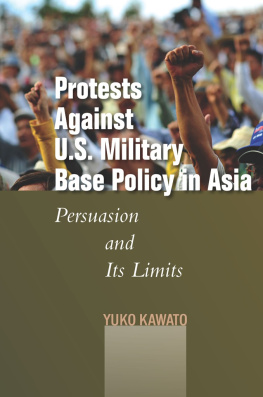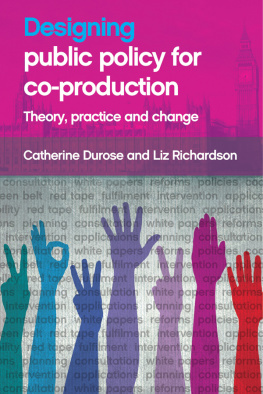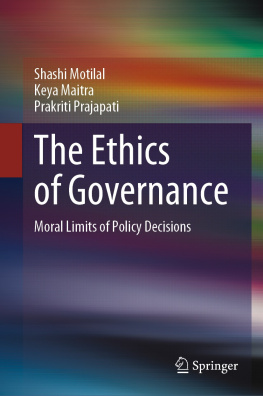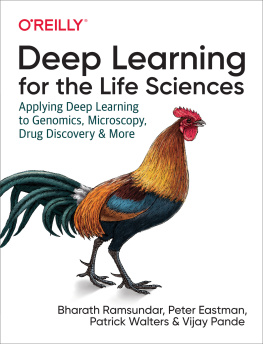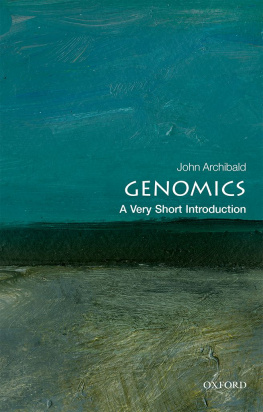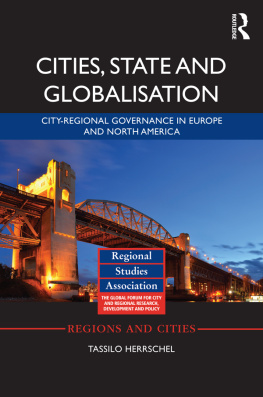THE LIMITS TO GOVERNANCE
This book is dedicated to long-suffering partners Richard Jackaman, Barbara Suarez and Barbara Bompani
The Limits to Governance
The Challenge of Policy-making for the New Life Sciences
CATHERINE LYALL
University of Edinburgh, UK
THEO PAPAIOANNOU
The Open University, UK
JAMES SMITH
University of Edinburgh, UK
First published 2009 by Ashgate Publishing
Published 2016 by Routledge
2 Park Square, Milton Park, Abingdon, Oxon OX14 4RN
711 Third Avenue, New York, NY 10017, USA
Routledge is an imprint of the Taylor & Francis Group, an informa business
Copyright 2009 Catherine Lyall, Theo Papaioannou and James Smith
All rights reserved. No part of this book may be reprinted or reproduced or utilised in any form or by any electronic, mechanical, or other means, now known or hereafter invented, including photocopying and recording, or in any information storage or retrieval system, without permission in writing from the publishers.
Catherine Lyall, Theo Papaioannou and James Smith have asserted their right under the Copyright, Designs and Patents Act, 1988, to be identified as the editors of this work.
Notice:
Product or corporate names may be trademarks or registered trademarks, and are used only for identification and explanation without intent to infringe.
British Library Cataloguing in Publication Data
The limits to governance: the challenge of policy-making for the new life sciences.
1. Life sciences--Government policy. 2. Science and state. I. Lyall, Catherine. II. Papaioannou, Theo. III. Smith, James.
338.926-dc22
Library of Congress Library of Congress Control Number: 2009924913
ISBN 978-0-7546-7508-2 (hbk)
Contents
Catherine Lyall, Theo Papaioannou and James Smith
Theo Papaioannou
Graeme Laurie, Ann Bruce and Catherine Lyall
Shawn H.E. Harmon
Christopher-Paul Milne and Joyce Tait
Paul Nightingale and Caitrona McLeish
James Smith
Julius Tazvishaya Mugwagwa
Nadja Kanellopoulou
Matthew Harsh
Peter Bryant
Catherine Lyall, Theo Papaioannou and James Smith
Figure
Notes on Contributors
Ann Bruce is a Senior Research Fellow at the ESRC Innogen Centre, University of Edinburgh. Much of her research relates to interests and values in stakeholder interactions in areas of genomics and in this context she has studied human stem cell research, GM crops, biobanks and genomic applications to farm animals (genetic modification and cloning). She also has a particular interest in the conduct of interdisciplinary research. Ann has worked in industry, NGO and research institute, as well as university, contexts.
Peter Bryant is a freelance advisor, facilitator and researcher. Specializing in participatory and deliberative forms of governance, he has worked widely in the UK, the rest of Europe and Africa. Most of his time is spent working with community groups, NGOs and local authorities on approaches such as citizens juries, participatory budgeting and participatory learning and action. Most recently in the UK he has worked with a group of young people on a European citizens panel on the future of rural areas as well as the citizens inquiry on the national DNA database. He is Vice Chair of the campaign group the World Development Movement.
Shawn H.E. Harmon is a Research Fellow at the ESRC Innogen Centre and AHRC SCRIPT Centre, both at the University of Edinburgh. In addition, he is the Principal Investigator on an ESRC-funded project entitled Governing Emerging Technologies: Social Values and Stem Cell Governance in Argentina, and he is Editor-in-Chief of SCRIPTed: A Journal of Law, Technology and Society. His research interests encompass medical and medical research governance, biotechnological innovation governance, and international intellectual property policies and their influence on innovation.
Matthew Harsh is currently a Postdoctoral Associate at the Consortium for Science, Policy and Outcomes and the Center for Nanotechnology in Society at Arizona State University. Much of his research focuses on how decisions about emerging technologies are made in Africa. A Marshall Scholar, he holds a BSc in materials science and engineering from Northwestern University and an MSc and PhD in science and technology studies from the University of Edinburgh. His work can be found in the Journal of International Development and Science and Public Policy.
Nadja Kanellopoulou is a Postdoctoral Researcher in Law at the Ethox Centre, University of Oxford. She specialises in medical law, ethics and intellectual property with particular interest in the governance of individual and group identity. She holds an LLB (Athens), an LLM on Medical Jurisprudence and a PhD on Group Rights in Biolaw (School of Law/AHRC SCRIPT, Edinburgh). She was previously a Research Fellow at the ESRC Genomics Policy and Research Forum, also at University of Edinburgh. Her current work focuses on legal and regulatory aspects of privacy and consent in the protection of personal data (EnCoRe project).
Graeme Laurie is Professor of Medical Jurisprudence in the School of Law at the University of Edinburgh and Director of SCRIPT, the Arts and Humanities Research Council Research Centre for Studies in Intellectual Property and Technology Law, also in the University of Edinburgh.
Catherine Lyall is Deputy Director of the ESRC Innogen Centre at the University of Edinburgh. Her research and professional practice seek to advance an understanding of problems of science and technology policy formation and strategic decision-making by adopting interdisciplinary and practitioner-based perspectives. Her interests also span research evaluation (particularly in the context of strategic change and knowledge exchange) and the promotion and management of interdisciplinary research. She has acted as a consultant to a number of public bodies including the Economic and Social Research Council, Scottish Funding Council, Scottish Government, European Commission, and the League of European Research Universities.
Caitrona McLeish is a Fellow at SPRU Science and Technology Policy Research at the University of Sussex. Since 1996 she has been attached to the Harvard Sussex Program on Chemical and Biological Weapons where she has undertaken projects on the governance of dual use technologies in both the chemical and biological warfare environments, conducted assessments of the impact that dual use control policies are having on the scientific and industrial communities and performed historical research on past offensive programmes.
Christopher-Paul Milne is formerly a practising veterinarian. He later attended Johns Hopkins University where he earned a masters degree in public health with a concentration in epidemiology and health statistics. He worked for the New Jersey Department of Health in risk assessment and regulatory review. In 1998, he graduated from law school and joined the Tufts Center for the Study of Drug Development (Tufts CSDD) as a Senior Research Fellow to address legal and regulatory issues that affect the R&D of new drugs and biologicals. He is a past member of the editorial board for the journal of the Drug Information Association (DIA) and now serves as the R&D Strategies Track Chair for the DIAs Annual Meeting. He is currently Associate Director of the Tufts CSDD and an Honorary Fellow at the ESRC Innogen Centre, University of Edinburgh.


